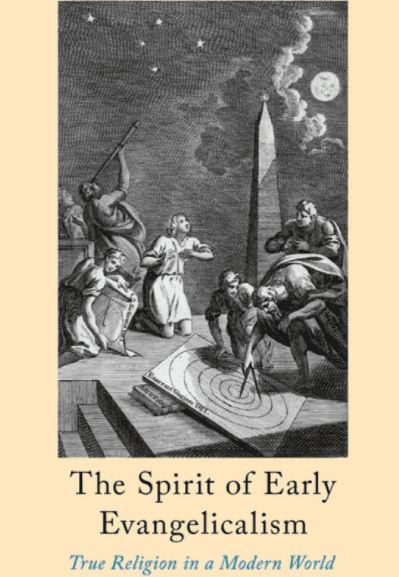 One of the most important, if not cutting edge, elements of D. Bruce Hindmarsh’s excellent new book, (The Spirit of Early Evangelicalism), is that evangelicalism arose alongside and integrated with modernity.
One of the most important, if not cutting edge, elements of D. Bruce Hindmarsh’s excellent new book, (The Spirit of Early Evangelicalism), is that evangelicalism arose alongside and integrated with modernity.
It became a movement, as we sketched in our previous post, because of modernity’s mobility. Mobility made it a movement. Three marks of a (sociological) movement:
(1) a concerted campaign to spread the movement,
(2) a repertoire of actions, including associations and coalitions and public meetings and rallies and demonstrations and statements to the public media,
and (3) public announcements of legitimacy and worthiness of respect and numbers.
These features contributed to the rise and international (well, Euro-centric) dimension of evangelicalism but there was also something profoundly “new” — or claimed to be “new” — in the movement.
Hindmarsh marshals solid evidence for the claims of newness. Newness does not mean a lack of continuity with the past in the sense of brand new or novel; but it does mean evangelicalism can’t be simply equated with Protestant or Reformation or Lutheran or Reformed or even apostolic.
Edwards calls his famous work the “surprising” work of God; others used “extraordinary.” One clear new theme is the widespread-ness of the movement: what happened in England happened in the USA in diverse places. Peter Berger says evangelicalism is the most modern religion in the world (60).
Some said what was happening was eschatological in the sense that what was predicted for the end times was now happening.
Something fresh or new or surprising was the sense that salvation was now conceived as present — thus, in the Wesleys who talked about knowing now and experiencing redemption now. Wesley’s famous sermon is called “Salvation By Faith” and then it was called “The Scripture Way of Salvation.” This experience with its interpretation — redemption is now and can be known now — is emphatic and distinctive of evangelicalism. That this was not brand new permitted critics to associate evangelicals with Enthusiasts and Anabaptists and Puritans and Quakers.
Which led to discussions and debates about the marks of genuine spiritual experiences.
Edwards supported the extraordinary work of God in the present. God illumines the heart and mind; there is divine light that is know-able; it can be immediate. Edwards connects this to the Spirit and the internal presence of God. Not so much cognitive as sensible.
Wesleys and Whitefield lit the fires; Edwards clarified it theologically.
This sensible experience is what constituted evangelicalism from the outset.











